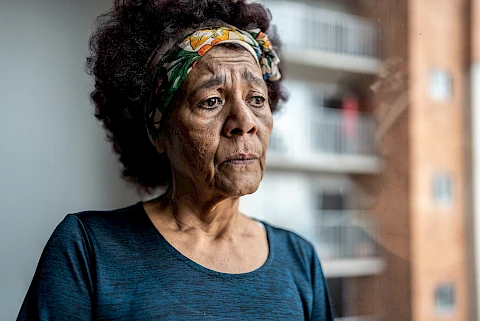
Alzheimer's disease is a serious and progressive neurological disorder that affects millions of people worldwide. It leads to declining cognitive functions, including memory, thinking, and reasoning skills. With no known cure, the impact of this disease extends not only to those diagnosed but also to their families and caregivers. World Alzheimer's Month is an essential time to raise awareness, share information, and support those affected by the disease.
Recognizing Early Signs of Alzheimer's
Recognizing the early signs of Alzheimer's can be crucial for timely intervention and support. Keep an eye out for these early symptoms.
- Memory loss that disrupts daily life: Forgetting recently learned information, important dates, or repeatedly asking the same questions can be early indicators.
- Difficulty in planning or solving problems: Struggling to follow a recipe, keep track of bills, or handle simple math problems can be a warning sign.
- Confusion with time or place: People with Alzheimer's may lose track of dates, seasons, and the passage of time. They might forget where they are or how they got there.
- Challenges in understanding visual and spatial relationships: Reading, judging distance, and determining color or contrast can become problematic for those with Alzheimer's.
- Problems with speaking or writing: Common symptoms include difficulty finding the right words, calling things by the wrong names, or having trouble following or joining a conversation.
If you notice your loved one is experiencing these symptoms, contact a doctor as soon as possible.
Exploring Treatment Options
While there currently is no cure for Alzheimer's, various treatments can help manage symptoms and improve quality of life. Medications such as cholinesterase inhibitors and memantine can temporarily reduce symptoms and improve mental functions. Cognitive therapies and activities can help stimulate the brain and maintain cognitive functions for as long as possible.
Lifestyle changes play a crucial role in managing Alzheimer's. Regular physical activity, a balanced diet, and mental stimulation can help improve overall health and possibly slow down the progression of the disease. Additionally, support groups, counseling, and educational seminars for patients and caregivers should be looked into.
Resources for Patients and Caregivers
Navigating Alzheimer's requires a network of support and resources. Local support groups offer a place to share experiences and gain insights from others facing similar challenges. Check with local community centers or senior services for group meeting schedules. Educational programs provided by organizations like the Alzheimer's Association offer important information and training for managing the disease, which can be invaluable for both patients and caregivers.
For those needing more comprehensive assistance, services like Senior Helpers Seattle offer specialized in-home care tailored to the needs of Alzheimer's patients. These services can include memory care, personal care, and companionship.
Approaching Difficult Conversations
Discussing an Alzheimer's diagnosis with family members can be challenging. To make these conversations easier, choose the right time and place: a quiet and comfortable setting where you won't be interrupted. Ensure everyone involved has the time and mental space to engage fully in the conversation.
Be honest and clear, using straightforward language about the diagnosis and its meaning. Avoid medical jargon that can confuse or overwhelm. Encourage open dialogue, allowing family members to express their feelings and concerns. This can foster a supportive environment where everyone feels heard.
To help family members understand the disease, offer resources such as brochures, websites, and information about local support groups. Discussing plans early on can help alleviate anxiety. Talk about care options, legal matters, and how roles might change over time.
Seek Out More Care for Seniors With Alzheimer's
Navigating Alzheimer's can be a challenging journey, but you are not alone. World Alzheimer's Month is a crucial time to seek out the support and resources needed to manage the challenges of the disease. By recognizing early signs, exploring treatment options, utilizing resources, and having open conversations with loved ones, you can better manage the impact of Alzheimer's. Remember, organizations like Senior Helpers Seattle are here to assist you every step of the way. Whether you are in Seattle, Bellevue, Kirkland, Redmond, or Sammamish, help is available to you and your loved ones. Contact us today to discuss our care options and the benefits they can offer.